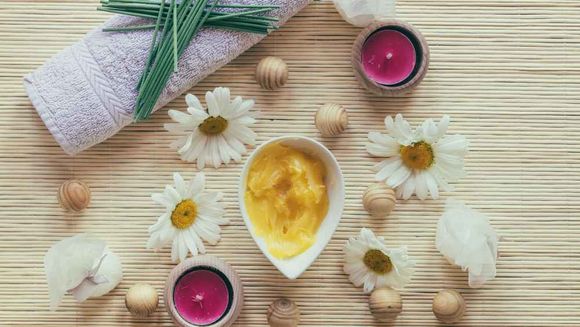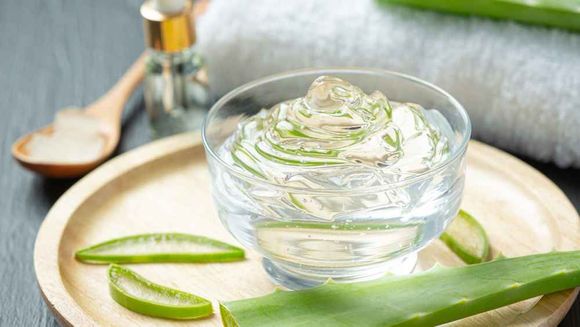What are the causes of dry skin?
Dry skin is an unpleasant condition characterized by peeling, itching and cracking of the skin. When this largest human organ loses water too quickly, it becomes dry. In other words, dehydration is at the heart of the problem. It is for this reason that every medical person, including dermatologists, always recommend drinking plenty of water to enjoy nourished and healthy skin.
And why skin dehydrates and becomes dry - it could happen for many reasons. Routinely used products such as cleaning soaps and other face products can remove natural oil from the skin. Prolonged and very hot showers can also make your skin dry. Living in a cold weather with a stronger wind can also be a prerequisite for drying out the skin. It is also possible that in the summer you could also find yourself with dry skin - for example, if you have not hydrated well and have not used sun protection.
Age, some drugs (statins, diuretics) and diseases can also cause excessive drying of the skin. Some conditions that affect the skin, including atopic dermatitis, ichthyosis, peryoral dermatitis, psoriasis and seborrheic dermatitis, can cause excessively dry skin and disrupt its hydration. Diabetes, thyroid disease or kidney disease are other health conditions that can also cause skin problems, such as acne or dehydration, that makes the skin pale.
It is also important to mention that in the first place the skin needs nutrients to be healthy. If you do not get enough vitamin D, vitamin A, niacin, zinc or iron, you can get flabby and dry skin.
"Dermatitis" is the medical term for extremely dry skin. There are several different types of dermatitis:
- Contact dermatitis - develops when the skin reacts to something it touches, causing localized inflammation.
- Seborrheic dermatitis - occurs when your skin produces too much sebum. This leads to the formation of a red scaly rash, usually localized on the scalp.
- Atopic dermatitis (eczema) - this is a chronic skin condition that causes the appearance of dry scaly spots.

Herbs and herbal oils for dry skin
Almond oil (Prunus Amygdalus)
Sweet almond oil is a great emollient that softens and soothes the skin. It has been proven to help restore moisture to dry and cracked skin, and this is key to its good condition. In addition, it relieves irritation, inflammation and itching due to dryness. [ref. 1]
Cocoa butter (Theobroma Cacao)
The velvety texture, pleasant aroma and softening properties of cocoa butter have made it a preferred ingredient in skin products. Cocoa butter helps heal and prevents drying and cracking of the skin. This oil also contains antioxidants that can help repair your damaged skin. [ref. 1]
Grape seed oil (Vitis Vinifera)
Grape seed oil has an astringent property, and when applied to the skin it helps to tighten and tone it. This oil also supports tissue regeneration and so can help heal scars. Besides these benefits, grape seed oil has hygroscopic properties. Its ability to lock moisture and restore tissue makes it extremely useful and effective as a moisturizer of the skin. [ref. 3]
Sunflower oil (Helianthus Annus)
Sunflower seed oil is extremely rich in vitamins A, C, D and E. It perfectly helps the skin retain moisture and can provide a natural barrier to protection against bacteria and other irritants that cause pigmentation. [Ref. 4]

Coconut oil (Cocos Nucifera)
Coconut oil has a pronounced softening effect and can help create a thin gentle layer that prevents moisture evaporation. The oil can be applied to deposit wrinkles and saggy skin, which usually occur with aging. Cocos nucifera also helps in the treatment of various skin diseases such as psoriasis, dermatitis and eczema. [ref. 5]
Colum oil (Garcinia Indica)
Garcinia Indica - a plant of the Clusiaceae family, widely known as cockum, is a fruit tree that has culinary, pharmaceutical and industrial applications. In cosmetics it is used to nourish the skin, as it is rich in essential fatty acids, which are necessary for the effective processing of nutrients. Cockum oil is also rich in antioxidant vitamin E, which is very important for good skin. By regenerating skin cells, it also maintains the elasticity of the skin and its flexibility. [Ref. 6]

Mango oil (Mangifera Indica)
This is a gentle oil obtained from the fruit nuts of the mango and is rich in essential fatty acids necessary to restore the tone, elasticity and flexibility of the skin. Mango oil is a great moisturizer, especially for mature, dry or sun-damaged skin. It also provides relief to dry skin, especially in conditions such as eczema and psoriasis. [Ref. 7]
Wheat germ oil (Triticum sativum)
This oil is rich in nutrients and has a particularly high content of vitamin E, which is a powerful natural antioxidant. Wheat germ oil helps to improve the condition of dry skin due to its high content of minerals and vitamins A, B, C, D and E.
It is often used in facial massage oils to soften and rejuvenate the skin. A great remedy for reducing stretch marks, delicate skin around the eyes and as face oil for dry skin. Wheat germ oil also helps to soothe irritation and redness from eczema and psoriasis. It also helps relieve itching and promotes the growth of new cells. [Ref. 8]
Papaya (Carica papaya)
Papaya is a key ingredient in skin whitening products as it contains papain - a natural enzyme that promotes skin renewal and cell growth. It helps in exfoliating the skin to stimulate newer cells and has restorative properties that soften the skin.
Papaya is rich in vitamins A, C and E and other antioxidants that help to provide the necessary moisture and protect the skin. In addition, the nutrients contained in the fruit papaya help strengthening the skin. [Ref. 9]
Shea butter (Butyrospermum parkii)
The protective and conditioning qualities of shea butter make it an excellent choice for dry skin care. Dry skin reacts quickly to the nutrient-rich moisture of shea butter, with increased elasticity and more effective moisture retention. The texture and elasticity of dry skin improve with regular use of shea butter, making it a superb natural care for dry, cracked and flabby skin. This oil is an excellent moisturizer for sensitive skin and is suitable for use in babies and children. [Ref. 10]

Pumpkin seeds oil (Cucurbita pepo)
This oil is another great source of essential fatty acids, zinc, vitamin E and beta-carotene. This oil is highly conditioned and has been used in lotions, soaps and massage oils in the past, as it helps to retain moisture in the skin and effectively hydrates dry skin. [ref. 11]
Aloe Vera (Aloe vera)
Aloe Vera is a natural UV inhibitor (prevents damage to the sun's rays) and its moisturizing, softening and intense moisturizing properties nourish the skin perfectly. Aloe Vera helps your skin retain its natural moisture, and this is key to its full appearance and structure. [ref. 12]








